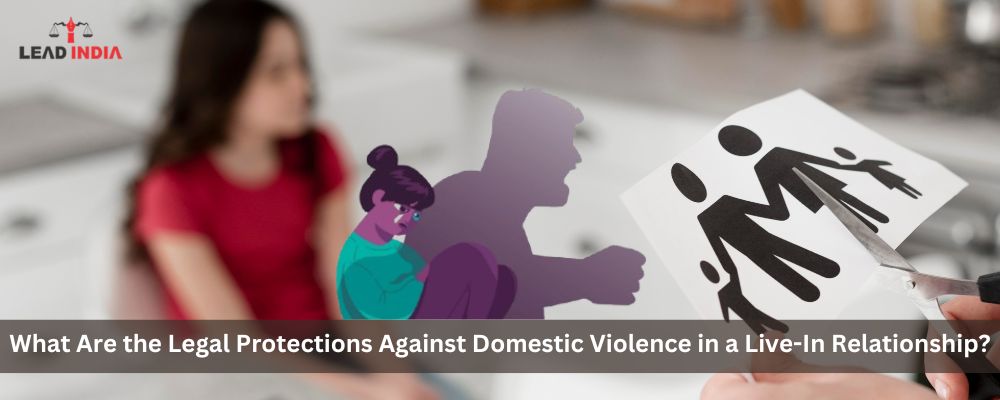Domestic violence universally continues to touch many lives, while legal protection becomes all the more relevant for the abuser. In India, the law concerning domestic violence has made strides keeping women’s rights applicable to live-in relationships. Most of the legal protections granted under Indian law would traditionally be on account of marriage. However, such recognition has given legal validity and some protection under Indian law to live-in relationships.
Live-In Relationships
- Even though Indian law has traditionally been conservative when it comes to live-in relationships, the judiciary has increasingly recognized some live-in relationships as valid under certain circumstances.
- One of the most valuable rulings regarding this matter was deliver in the case Indra Sarma v. V.K.V. Sarma (2013). Here, the Supreme Court of India recognized “live-in relationship” under the Domestic Violence Act but, along with it, flagged various nuances and legal limitations related to such relationships.
- This hurdle has now been surmount from progressive points of view; however, it does not mean that live-in relationships are the same as legal marriages. Thus, Indian law does not include any mentioned provision for protection of individuals living in live-in relationships under the Hindu Marriage Act, 1955, or Special Marriage Act, 1954.
- However, some provisions, especially under the Protection of Women from Domestic Violence Act (PWDVA), 2005, extend certain protection to people in live-in relationships.
Need A Legal Advice
The internet is not a lawyer and neither are you. Talk to a real lawyer about your legal issue

About the Protection of Women from Domestic Violence Act (2005)
Section 2 (f) of the Domestic Violence Act defers the meaning of “domestic relationship” to include an association existing between two persons who share to live, or not, in the same household. Underlining the breadth of the definition, it covers even individuals in live-in relationships. It is specifically word to exclude the protective domain of the law from being enjoy only by married women.
Scope
- The act has a pretty wide definition of domestic violence; it includes even emotional, verbal, and economic abuse along with physical.
- It even extends to women in live-in relationships to avail the provisions of the Act in case they have to face any kind of abuse by their partner.
- What is also important to note is that the violence must occur in the domestic sphere, and the relationship must have happened over a stated period.
- However, the law does not really stipulate a particular minimum duration for such a relationship, which means even very short-term live-in relationships do qualify and find their place within the Act.
Relief under the PWDVA
The PWDV Act provides an aggrieved woman in a live-in relationship with different specific means of relief, such as:
- Protection Orders: This kind of order involves restraining the abuser from contacting or approaching the woman with or by any means.
- Residence Orders: Such an order can be provided by the court for a woman to have a right to the shared household regardless of whether the house belongs to the abuser.
- Monetary Relief: Monetary relief can take the form of court direction for monetary compensation by the abuser to the woman for any financial injuries sustained because of the abuse.
- Custody Orders: Where there are children born to the woman within the relationship, she can seek custody or visitation rights from the abuser.
The Act provides relief sought by a woman without any formal legal representation and thereby aims to enable a speedy and efficient process.
Ways to Follow for Legal Protections against Domestic Violence in a Live-In Relationship
The PWDV Act in India gives women legal protections even when they cohabitate. This is how you would seek protection under this Act:
- File a Complaint: Approach the Protection Officer or a service provider in your area to file a complaint. They will help you get the legal procedure start.
- Obtain Protection Orders: You should file a petition for protection orders against further abuse in court protection orders, restraining the respondent from domestic violence acts.
- Demand Residence Orders: Application for a house order may be act with respect to the residence order if there is a right to occupy the common dwelling.
- Claim Monetary Relief: You may be entitle to monetary relief for medical expenses, loss of earnings, and compensation for emotional distress.
- Access Shelter Homes: Use these shelters if you need to. Those government recognized homes meant specifically for women in distress.
PWDVA makes “domestic relationship” inclusive of marriage-like relationships, thereby protecting women into live-in relationships. The Supreme Court agree, holding that live-in partnerships are cover under the Act.
Laws protecting women in live-in relationships in India have clearly been making strides over the years. Particularly, the Protection of Women from Domestic Violence Act has been a significant legal enactment. Although the judiciary has been expanding the scope of protection for women in non-marital relationships, there are still gaps and challenges in the legal framework. Lack of clear guidelines, social stigma attached to such relationships, and the difficulty in proving their existence are some of the obstacles women in live-in relationships have to face.
One can talk to a lawyer from Lead India for any kind of legal support. In India, free legal advice online can be obtain at Lead India. Along with receiving free legal advice online, one can also ask questions to the experts online free through Lead India.





 Talk to a Lawyer
Talk to a Lawyer